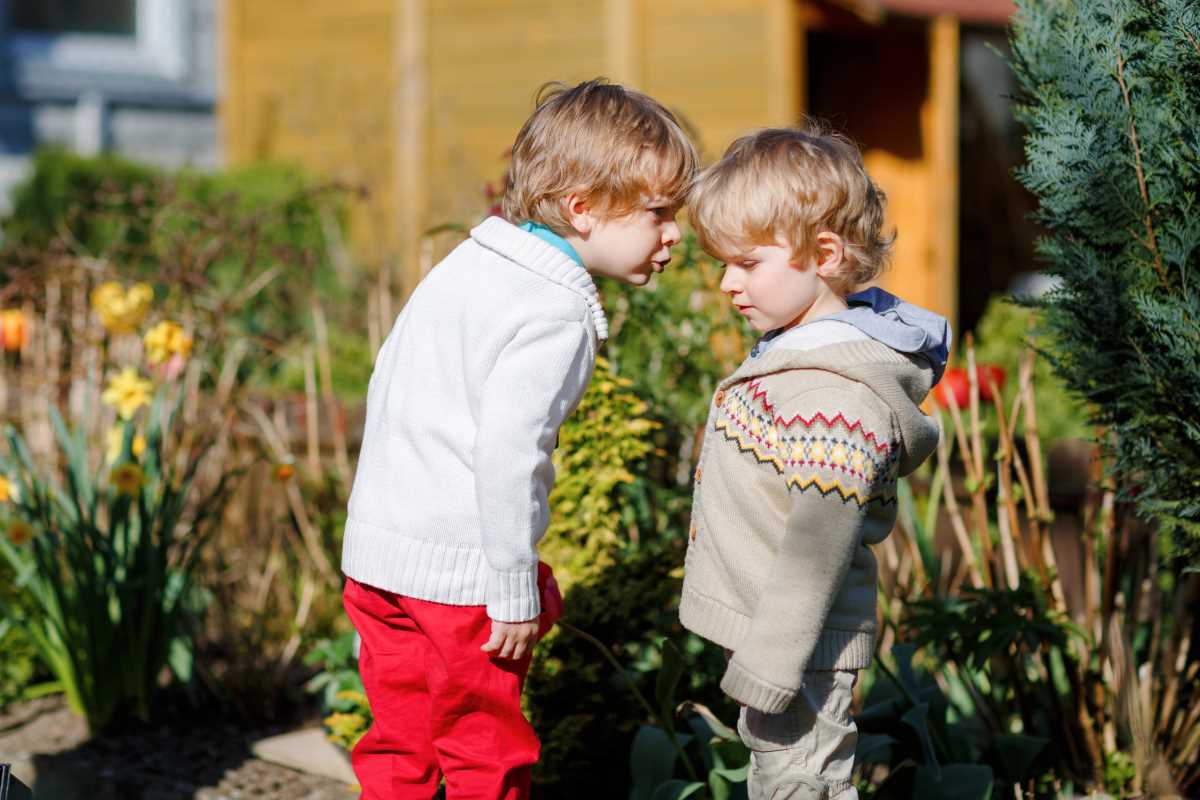Sibling rivalry is a normal part of family life. From minor disagreements over toys to full-on arguments about who gets the bigger slice of cake, siblings inevitably clash from time to time. While some level of conflict is expected and even healthy, unchecked rivalry can lead to long-term resentment and strain within the family.
The good news is that parents play a key role in managing sibling dynamics. By promoting positive relationships and avoiding common pitfalls, you can help your kids develop healthier ways to work through their differences. This guide covers the essential do’s and don’ts of handling sibling rivalry to create a more peaceful and supportive family environment.
Do Acknowledge Sibling Rivalry Is Normal
Sibling rivalry stems from a variety of factors, including jealousy, competition for attention, and personality differences. Understanding that conflict is a natural part of sibling relationships helps you approach these situations with a calm and level-headed mindset.
Why It’s Normal:
- Kids often compete for their parents’ attention or approval, even if it’s subconscious.
- Developmental stages can influence rivalry. For example, toddlers might have a hard time sharing, while teens may struggle with fairness or independence.
- Differences in temperament and interests naturally lead to clashes.
When you recognize rivalry as part of the growing-up process, you can address it with patience and empathy while guiding your children toward resolution.
Do Teach Conflict Resolution Skills
Instead of always stepping in to solve disputes, teach your kids how to resolve their disagreements independently. This not only reduces the frequency of conflict but also gives them tools they’ll use throughout their lives.
How to Teach Conflict Resolution:
- Encourage them to express their feelings: Saying “I feel upset when…” is more constructive than shouting or blaming.
- Practice active listening: Teach kids to listen to each other’s perspectives without interrupting.
- Brainstorm solutions together: Guide them to find a compromise or agreement that works for both parties.
- Model constructive behavior: Demonstrate how you resolve conflict calmly, so they learn by example.
These skills take time and practice to develop, but they empower kids to handle disagreements in healthier ways.
Do Encourage Teamwork
Focusing on teamwork helps siblings see themselves as part of the same team rather than competitors. When siblings work together toward common goals, their bond naturally strengthens.
Ideas to Promote Teamwork:
- Set up cooperative activities: For example, give them a puzzle to solve together or plan a family project that requires collaboration.
- Highlight shared successes: Celebrate moments when they work well together, such as helping with chores or supporting each other in a game.
- Use “we” language: Say things like, “We’re a family, and we help each other,” to reinforce a sense of unity.
Promoting teamwork reminds your kids that they don’t have to compete for your attention or approval.
Don’t Play Favorites
One of the most common mistakes parents make is showing favoritism, even unintentionally. Kids are highly sensitive to perceived inequality, and favoring one child over another—even in subtle ways like giving one extra praise or more leniency—can fuel sibling rivalry.
How to Avoid Playing Favorites:
- Be mindful of your words and actions: Ensure you’re praising each child for their unique strengths and offering equal attention.
- Avoid making comparisons: Instead of saying, “Why can’t you be more like your brother?” focus on each child’s individual qualities.
- Spend one-on-one time with each child: Setting aside time for each child reinforces that they’re valued and loved equally.
Maintaining fairness and balance is key to reducing feelings of jealousy and competition among siblings.
Don’t Force Immediate Apologies
When conflicts happen, it’s tempting to insist your kids apologize right away and move on. However, forcing an apology before they’ve had a chance to cool down can actually make things worse.
Why Forced Apologies Don’t Work:
- Kids may apologize just to end the conversation without truly understanding or feeling remorse.
- It can escalate emotions if they feel pressured while still angry.
A Better Approach:
- Allow both children time to calm down.
- Encourage them to talk about what happened and how it made them feel.
- Help them come to an apology and resolution naturally, rather than forcing it.
Focusing on understanding and empathy rather than empty words leads to more genuine apologies and better outcomes.
Do Set Clear Family Rules
Having clear rules about acceptable behavior can minimize conflicts and set expectations for how siblings should interact.
Examples of Family Rules:
- No hitting or physical aggression.
- Speak respectfully to one another (no name-calling or mocking).
- Take turns when sharing toys or spaces.
Post the rules somewhere visible, like on the fridge, and remind kids about them regularly. Consistency in enforcing these rules helps create a fair and structured environment.
Do Teach Empathy
Helping kids understand each other’s feelings goes a long way in reducing sibling rivalry. When children can put themselves in each other’s shoes, they’re less likely to hurt one another and more likely to offer support.
How to Foster Empathy:
- Ask reflective questions: For example, “How do you think your sister felt when you said that?”
- Encourage acts of kindness: Suggest small gestures like sharing or helping with a task.
- Read books about empathy: Stories with relatable characters can help kids learn about compassion and understanding.
Building empathy helps siblings bond and treat each other with care, even during disagreements.
Don’t Overreact to Every Argument
It’s normal for siblings to argue occasionally, and not every disagreement requires parental intervention. Overreacting or stepping in too quickly can send the message that they aren’t capable of working things out on their own.
When to Step Back:
- If the conflict is minor, such as arguing over which show to watch, give them space to resolve it independently.
- If no one is being hurt or overly distressed, it’s okay to observe rather than intervene.
When to Step In:
- If there’s physical aggression or the argument escalates to intense anger.
- If one child is always dominating or bullying the other.
Knowing when to step in and when to step back is key to teaching your kids independence while ensuring their safety.
Do Celebrate Their Bond
Reminding siblings of the unique bond they share can help strengthen their relationship over time. Create opportunities for connection and celebrate the positive interactions they have.
Ways to Celebrate Their Bond:
- Share family stories: Talk about special moments they’ve shared, like vacations or funny memories.
- Plan sibling-only activities: Encourage them to spend time together without parental input, like playing a game or working on a project.
- Take photos of them together: Celebrating their relationship visually reinforces the idea that they’re partners for life.
Helping them see the value of their sibling bond reduces rivalry and encourages mutual respect.
Don’t Ignore Your Own Stress
Parents’ stress and emotions often trickle down to kids. If you’re feeling overwhelmed or short-tempered, it might amplify sibling conflicts.
How to Manage Your Own Stress:
- Practice self-care: Prioritize rest, relaxation, and hobbies to keep your energy levels up.
- Seek support: Talk to a partner, friend, or therapist about the challenges of parenting.
- Stay calm during conflicts: Model emotional regulation so your kids learn how to handle disputes effectively.
When you’re calm and centered, you’re better equipped to guide your children through sibling squabbles.
 (Image via
(Image via





